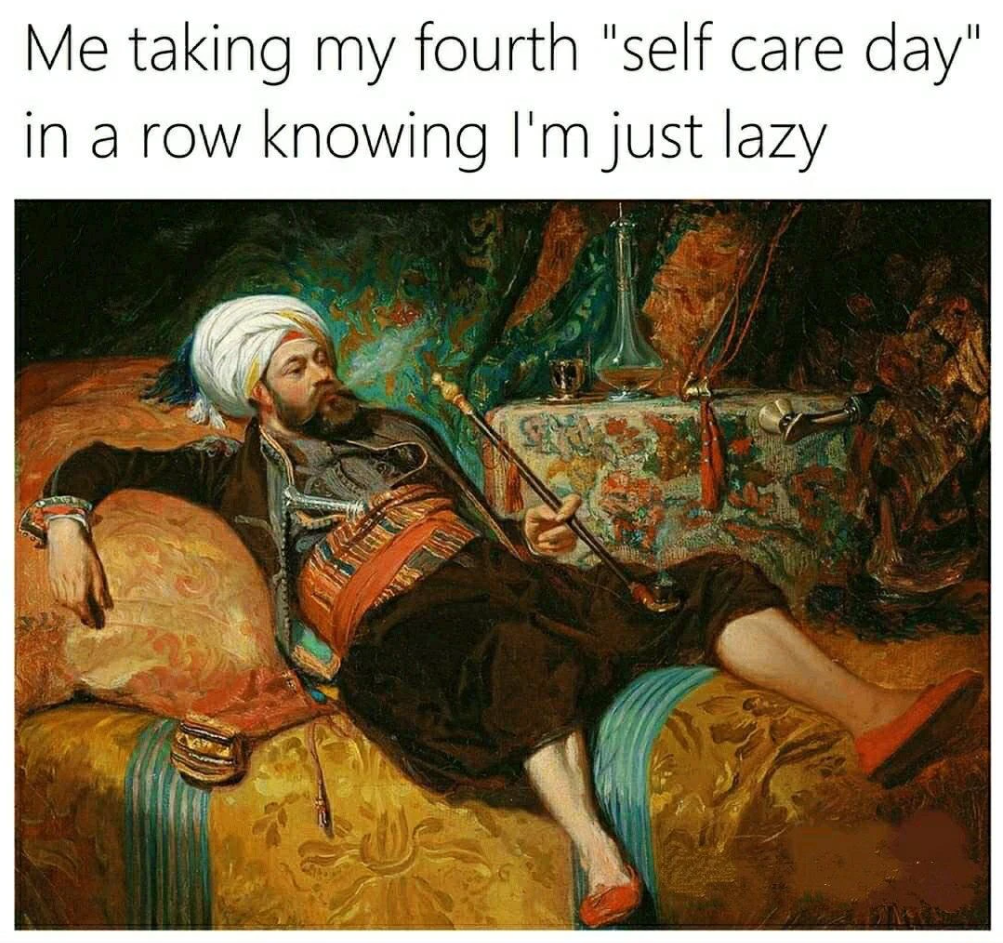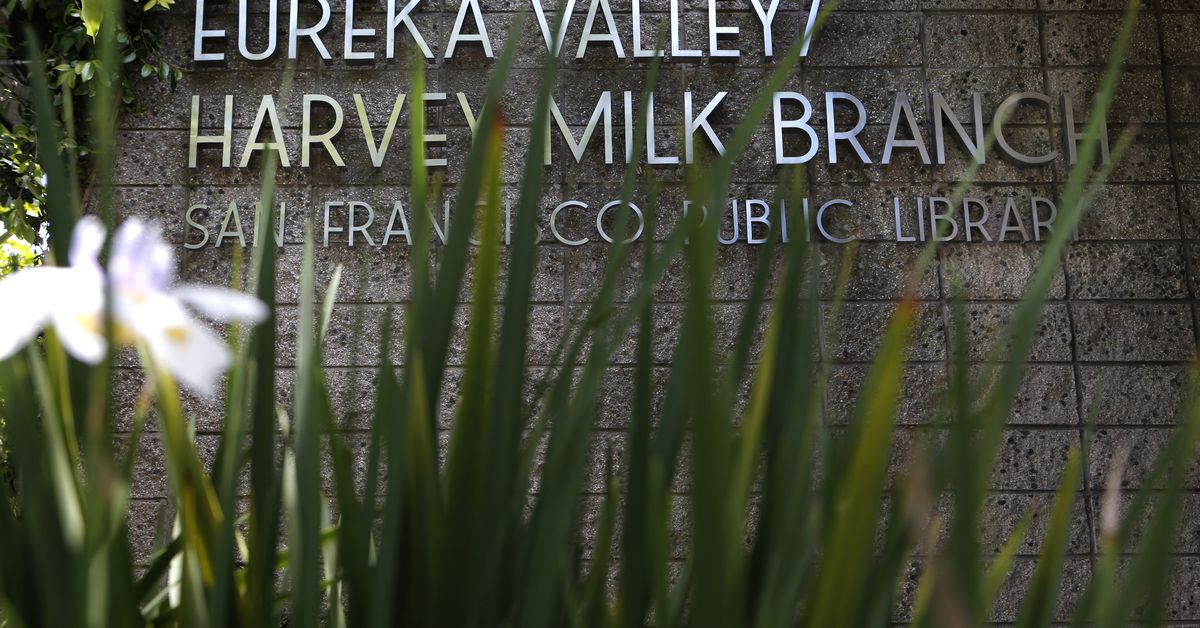- cross-posted to:
- technews@radiation.party
- technews@radiation.party

I’ve been to places that had free municipal wifi, mostly at libraries and bus stops. It seems like a small service that is generally helpful to people without access to their own wifi. I think the better solution is to have more places with free wifi at night so people don’t have to congregate in the one small area.
There aren’t many places the unhoused are allowed to exist in public and cutting them off from essential services only makes it harder for them to better their situation.

Internet should already be a human right at this point. It’s a treasure trove of information that really catapults someone who has access to it ahead of someone who doesn’t, meaning internet access is definitely an index of (in)equality.

The town nearest to me has free wifi on its main street AFAIK. Can see it being very useful for homeless people.

to better their situation
Well, that is, assuming they want to. Some, definitely. Long term loiterers, not so sure.

So we should take away something that is necessary to someone helping themselves (have you tried to apply for a job or take a class without using the internet recently, it’s required), just because some people don’t care about living in squalor?
If all they are doing is “loitering” to use the internet, then they aren’t doing anything wrong. It sounds like the problem is simply the number of people and the neighbors didn’t approve. In that case, the truly win/win option is to provide greater access points to free wifi so people don’t have to congregate in one small area. This outcome only hurts people.

People who are addicted or who have given up to that degree are less likely to want help if they think real life can only be totally miserable for them (like, “the world is unbearable, there’s nothing good left for me except [drug name here]”). Same reason people who are depressed turn to drinking. Making the lives of unsheltered people even worse, thus making drugs more appealing in comparison, is counterproductive. And the longer they’re stuck in that, the more that’ll just feel like what life is to them.
Maybe people who don’t want to, or don’t act like they want to, better their situation actually would if they could see any hope for it, and if the path looked more doable and less like scaling mount everest with a broken leg.
I think anybody can think of times they didn’t want to do something that would benefit them - clean a house, do their homework, go to work in the morning - and other times that the situation was different and so it was much easier to do.

California wants to help the homeless but they also don’t want to pay for drug treatment, safe injection sites, or psychiatric centers.

California does, right wingers in California do not and they pay MASSIVE amounts of money for advertising campaigns to misrepresent drug treatment, safe injection sites, and psychiatric centers as free drugs and won’t somebody think of the children???
Do you want one of THOSE people to be getting help next door to you? Oh the horror! Don’t you know that junkies sneak off in the night, into your homes in order to stab your children with drug filled needles??? Do you have any idea what it’s like to be near a psychiatric center? I do. My brother’s nieces cousins uncle twice removed on her mother’s side told me that the crazies like to kidnap your children and vandalize your house.
Where did I put my pearls? I’m in desperate need of clutching them.
/Dripping Sarcasm Also source: I live in CA

What crime is being committed while unhoused folks are online? Cybercrime? Are they pretending to be Nigerian princes?

Read the article, the problem isn’t their online activities but the wifi attracting them to cluster outside the library building. The residents don’t want the homeless hanging around outside the library and turning off the wifi would reduce their incentive to be there.

Maybe instead of taking things away, we should be providing tax funded public wifi in more places. The internet isn’t a luxury anymore, and those without homes still have a right to access it (yeah even at night).

brilliant. it’s practically a utility at this point; i hate going places and seeing weird shitty scam ‘freeATTwifi’ everywhere. public internet now.

Sure, but that’s not the responsibility of the library in question. This article is great, an obvious victim and an obvious villain for easy consumption and allegiance, but there’s definitely more to the story. If the homeless are making the lives of the library staff a living hell then I don’t see a problem with this honestly.

The actions of the library are cowardly and the justifications of the residents in the area are abhorrent. God forbid we do something to help those in need, let’s just push them out of sight instead.

The residents don’t want the homeless hanging around outside the library and turning off the wifi would reduce their incentive to be there.
i mean bluntly, sucks to be them? but get over it. homeless people are people too! the obvious solution is to provide them with social services first if this is the objection (which, to be clear, it generally isn’t–it’s that homeless people exist and aren’t out of mind)

classic nimby bs. what they dont realize of course is that getting rid of wifi isnt gonna stop them from congregating, theyll just congregate elsewhere

Which is the point. That’s a win for the NIMBYs who got this policy enacted. It’s literally no longer in their backyard.

Is existing outside of the library a crime?

This article has a great deep dive on how we have so few “free” or community-sourced places in the US that they often get used as a catch-all for any and all social problems we have. See: libraries as homeless shelters. From the article:
What’s happened is we’ve stigmatized our public spaces, because we’ve done so little to address core problems that we’ve turned them into spaces of last resort for people who need a hand. And as we do that, we send another message to affluent, middle-class Americans, and that is: If you want a gathering place, build your own in the private sector. So we have a lot of work to do.

That’s a great point – by making public places the only places you can exist while poor, you push all the homeless there and everyone else ends up avoiding it and going to places they have to spend money at. Enforced consumption.
Picnic in the park? Sorry, tent city there. Better go to a restaurant instead.
Baseball at the diamond? Needles and excrement, let’s go bowling instead.
Grab some books from the library? Someone’s smoking crack in the bathroom, I’ll just buy the book from a store. Or Amazon.
Ideally these public spaces would be for everyone, but more and more they’re repurposed for social services.
- argv_minus_one ( @argv_minus_one@beehaw.org ) 6•1 year ago
Obvious solution: stop making people homeless.

Full disclosure: I work in a library shelving materials.
This take overlooks one of the factors that really needs to be addressed: mental illness. I have seen people without full control of their faculties outright refuse assistance because for whatever reason they believe that what they are being offered isn’t good for them. Some of them want help, but some of those also want help on their terms, which is not how a lot of social/outreach programs work. And that’s not even getting into the issues of substance abuse that act as a black hole for any material gain. Granted, there are people who will jump through any hoop to escape being homeless, but many who suffer the most really need more than just a place to live; they need to completely overhaul their lives, and our social system isn’t currently designed to do that.

Literally everything is easier if you have a door you can lock and a roof over your head. Even if it doesn’t get you all the way.
I think if people “want help on their terms”, social/outreach programs should be designed to actually be appealing to those people and less restrictive, where possible. This might include stuff like, for example, allowing homeless folks to bring their dog with them into shelters, or just trying not to impose unnecessarily on their lives and autonomy (beyond what’s needed for safety of others) and not making help conditional where it doesn’t need to be (e.g. you can have a roof only if you get off this drug and take a weekly drug test, else you get the boot and can sleep in the snow again), because that’ll just feel like bullying/coersion and make them want to listen even less. Everybody’s more likely to do a thing if it’s an ask or an offer, and not a demand with an " or else" threat attached.

Adding onto this, you can’t really overhaul your entire life unless you have a place to live.
I’m speaking from the other side, I spent some time homeless, and I agree with you. Some people do need more than just a place to live. They need mental health treatment, they need assistance with their drug dependency. They need professional help.
But, it’s also impossible for someone to consistently get professional help unless they have a consistent place to rest their head.
Because again, I am agreeing with you, but the part I disagree in is the order of where mental illness comes in. Because I reckon for a lot of homeless folk, they start off fine, and then the trauma of the situation sends them completely mentally loose. I was lucky to have the internet and my friends to keep me stable enough, and even I have plenty of screws lost now.
It’s a hard issue to solve, and I genuinely think it’ll take decades of actual effort (not half measures) to see some actual gain. And homelessness is literally ingrained into an economy of winners and losers. Because it is a lot more than just stop making people homeless at this point.

It used to be easier to get a place to stay, even for mentally ill people and those with substance use disorders. The insane cost of housing prices out marginal people first. It somehow became normal to blame the person not the system. Worst still, the high cost of housing oppresses those who can afford rent too.
Everything is pay for use.

There are so many problems with this.
Far too many homeless people, there is so much wealth in this nation, there is no reason we cannot provide ample shelter. This probably is going to continue to become worse with the disproportionate wealth distribution and the continual increase in use or automation and AI.
Additionally, we should have broader access to wifi, specifically for those who are homeless and need access to online resources, so they can eventually no longer be homeless. Seems like a great federal program opportunity, if we actually want people to be able to recover from being homeless. No one is going to become homeless or stay homeless because of the badass government subsidized wifi.
This seems incredibly self perpetuating on the cities behalf. It’s like making places uncomfortable to sleep upon… Why not invest that money into someplace people can goto sleep and get the assistance they need to exist in society.

Yeah the treatment of the homeless is crazy as hell to me, why kick someone when they’re down? You try finding a job when you can’t find a good place to sleep, a decent place to take shelter from rain or heat, restricted access to the internet and restaurants refusing to give you leftovers. Shit sucks. It was hard enough to find my next job after I got laid off and I fortunately had a month off expenses saved. Imagine if it took me just a little bit longer to find a job and that I didn’t have any friends with room in their house. I would be homeless.
I agree internet, shelter, food and basic medical need to be considered a human right, if you want a productive society wouldn’t you want to help the people getting left before so they can contribute?

Not quite to aggressive architecture levels of dickishness, but still.

it’s the exact same thing imo :(

Our local library, which is usually really great, started playing loud classical music at the entrance after hours to shoo away the unhoused. I’m glad they stopped doing that after a couple months; that’s lowered my usually-high opinion of them.

nothing drives me more insane than artificial restrictions placed on digital technology that could otherwise be infinitely helpful

For all those times I was going to commit a crime, but the WiFi was out.

this is symptomatic of how genuinely subhuman American society at-large treats homeless people, even though it is trivial in American society to become homeless. one wrong bill, one bad week, or one day of being in the wrong place is enough–and yet it is completely accepted that something of that sort happening to you places you into a class unworthy of rights and basic services afforded to others. it’s absurd!

I am not American so I can’t claim to know about the causes of homelessness there, but I think this is because the homeless can generally be sorted into two categories. One is, as you mentioned, the people who unfortunately encountered financial trouble and lost their home. These people are legally homeless but usually invisible, because they move in with their friends and family or live in their car. They are generally able to financially provide for themselves and will eventually have a home again. Society is very empathetic to this group and there is a lot of support for them, but they’re not what people think of when homelessness is discussed.
The public perception of homelessness is the second type of visible and persistently homeless people, the ones you see on the streets. They suffer from mental disorders and drug addiction, so they lack a support network, cannot provide for themselves normally and will often turn to crime to survive. It’s not unexpected that people see this group as “assaults people in public”, “attracts crime”, “leaves trash and needles around” and lose empathy for them. Now I’m not an expert on this issue and this categorization is obviously a generalization, but it helps to understand why people hold certain perspectives in this debate.

this is less of a dichotomy than i think is described here, though: almost all people in the second category were at one point people in the first and end up there because the support described in the first category disappears. when you become homeless, that frequently means you lose almost everything–and it’s really, really hard to build up from nothing in modern society because the expectation is that you have money to survive, and there’s only so far people are willing to pay your way forward with that expectation.
(there’s also the reality that even if you have something, there’s only so long you can make that last without a job–and for a homeless person getting one can be functionally impossible, no matter how menial. housing is also catastrophically expensive, so even if they clear the job hurdle once they’re down, the housing one may be likewise impossible to clear. this treadmill is a big part of why so many people become visibly and persistently homeless)

As someone who deals with homeless and near homeless a lot you’re absolutely right. Our system constantly fails the most vulnerable by not providing then with support when they have none. I do my best to provide them with contacts to resources and social workers but those resources are incredibly limited and I’m sure most end up without help regardless.

Well written piece. Homelessness is a multifaceted issue.
I do know that if you have no cell service, having internet / Wi-Fi is essential to stay in touch with others. More communities should offer free Wi-Fi.

Yes, why provide free internet access to check their email and maybe get a reply to their job applications? Better keep them out of work /s

I just want to say Mission Local is pretty freakin cool for being one of the last remaining newspapers that does their own independent journalism.

Sounds like a great place to take a piss

Probably too tired of cleaning up human shit from around the library. This is SF we’re talking about. There’s literally a poop map

You’ve gotta think that these people would rather use a toilet. Is the public toilet situation in SF really that bad?

There are no public toilets in the vast majority of San Francisco.

Do you live in the states? I’ve never really been to a city where public restroom access is well advertised or even convenient. You’re expected to go inside places of business.

If you’re obviously homeless, ain’t no business letting you in there.
And yes, that’s a typical US tactic. Instead of public services, we give control over to private businesses. But it’s particularly bad in SF, worse than most cities.

It’s bad everywhere.

The problem unhoused people face is not nighttime library access it’s housing. We all know that the reason they’re shutting their wifi off at night is because while for some homeless people this wifi is a lifeline, for some others it’s where they get their porn or where they hang out to do drugs and browse the internet. But the fundamental problem remains the same, because they have no where to go home to, whether someone is fapping or connecting with helpful resources, it’s all done in public.

If you think turning off the wifi is going to stop people from masturbating…

Yeah but building housing is expensive and difficult and takes a long time. But turning off wifi is easy and cheap and has an immediate effect.

What’s the reasoning there? Are people without houses not allowed to use the wifi during the day? Is there something bad that happens if you use the internet without a house at night?

Probably to discourage them loitering around the library at night. That’s the only rationale I can think of.

